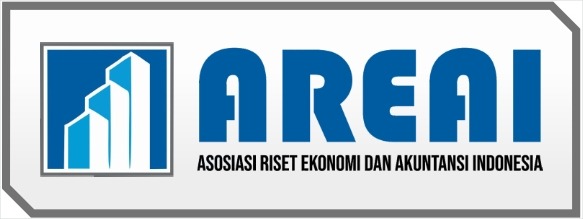Analysis of E-Invoice 3.0 Implementation in Improving Taxpayer Compliance at Kpp Pratama Bandar Lampung Dua
DOI:
https://doi.org/10.61194/ijat.v1i1.9Keywords:
e-faktur 3.0, Implementation, taxpayer complianceAbstract
In order to realize a safe, orderly, just and prosperous nation's life, it is necessary for the state to have sources of income, one of which is in the form of Value Added Tax (VAT). However, the emergence of the COVID-19 pandemic has greatly shaken the Indonesian economy. The state must increase its spending to contain the epidemic and maintain the economy. The drag on tax and state revenues has been another challenge. Therefore, on October 1, 2020, the Directorate General of Taxes (DGT) officially launched the e-faktur application version 3.0 with the aim of making it easier for taxpayers to fulfill their tax obligations which is expected to increase taxpayer compliance and increase state revenue. The purpose of this study was to analyze the implementation of e-faktur 3.0, the obstacles to implementing e- faktur 3.0, and the efforts made to overcome these obstacles in order to increase taxpayer compliance at the Primary Tax Office of Bandar Lampung Dua. Data collection methods used in this study were observation, interviews, documentation and literature study. This study used the theory of George C. Edward III which carries the variables of communication, resources, disposition, and bureaucratic structure. The results showed that the implementation of e-faktur 3.0 has fulfilled all the variables needed to improve taxpayer compliance. Meanwhile, the inhibiting factors are the frequent occurrence of errors or maintenance in applications and counseling or campaign regarding the implementation of e-faktur 3.0 which cannot be carried out face-to-face due to the COVID-19 pandemic. The efforts of the Primary Tax Office of Bandar Lampung Dua in overcoming these obstacles are to provide a consultation or help desk and online media for taxpayers.e-faktur 3.0
References
Duadji, Noverman et al. 2019. Science of Public Administration, First Edition. Yogyakarta : Graha Ilmu
Halim, Abdul et al. 2020. Taxation, Concepts, Application Examples, and Case Studies, 3rd Edition. Jakarta: Salemba Empat
Handoyono, Eko. 2012. Public Policy, First Printing. Semarang: Widya Karya
Mardiasmo, 2013. Taxation (Revised Edition). Yogyakarta : CV. Andi Offset. Mulyadi, Deddy. 2015. Public Policy and Public Service Studies. Bandung: Alfabeta
Neuman, W.S. Aurence.2013.Social Research Methodology: Qualitative and Quantitative Approaches 7th Edition. Jakarta: Index
Official, Siti. 2016. Taxation Theory and Cases. Jakarta: Selemba Empat Safri Nurmantu. 2005. Introduction to Taxation. Jakarta: Granite
Siti Kurnia Rahayu, 2010. Indonesian Taxation: Concept and Formal Aspects, Yogyakarta: Graha Ilmu.
Siti Official. 2008. Taxation, Theory, and Cases, Book 1 Edition 4. Jakarta: Salemba Empat.
Siti Official. 2013. Taxation, Theory, and Cases, Book 1 Edition 7. Jakarta: Salemba Empat.
Shahruddin. 2019. Public Policy Implementation. Bandung: Nusa Media Waluyo, 2011. Indonesian Taxation.Jakarta: Salemba Empat.
Sahetapy, T. C., Runtu, T., &; Tangkuman, S. J. (2021). Evaluation of the application of the e-Invoice 3.0 system in reporting VAT period tax returns on Cv. Mayiba Agung Mandiri Sorong-West Papua City. Going Concern: Journal of Accounting Research, 16(2), 157-168.
Akhmad, A., Nuhung, M., &; Jannah, M. (2021). The role of prepopulated data in improving the ease of reporting Value Added Tax at the Tax Service Office (Kpp) Pratama Makassar Utara. Amnesty: Journal of Tax Research, 4(2), 413-420.
Yandina, 2018. Analysis of the Application of E-Invoice in Increasing Tax Revenue at Kpp Pratama Medan Petisah.
Tyasminingsih, 2016. The effect of the application of electronic tax invoices (e-invoices) on the level of compliance of taxpayers at KPP Pratama Surabaya Wonocolo.
Lintang, Kalangi et al, 2017. Analysis of the implementation of the electronic filing system policy as an effort to improve taxpayer compliance in submitting annual returns to Kpp Pratama Tanggerang Barat in 2013, 2014, and 2015.
Dalimunthe, 2019. The effect of e-Invoice and e-Billing on the compliance of corporate taxpayers registered at the Pratama Subulussalam Tax Service Office.
Idar Rachmatulloh and Putri Y. Pamungkas, 2017. Analysis of the implementation of the e-Invoice policy in an effort to increase state revenue at Kpp Pratama Tebet in 2016.
Muturi, H. M., & Kiarie, N. 2015. Effects of online tax system on tax compliance among small taxpayers in Meru county, Kenya.
Liu, H., Xia, Q., & Xu, J. (2011). Notice of Retraction: Taxpayer compliance in China: A prospect theory analysis. 2011 2nd International Conference on Artificial Intelligence, Management Science and Electronic Commerce, AIMSEC 2011 - Proceedings, 7292–7297. https://doi.org/10.1109/AIMSEC.2011.6009750
Ramírez, J. M., Díaz, Y., & Bedoya, J. G. (2017). Property Tax Revenues and Multidimensional Poverty Reduction in Colombia: A Spatial Approach. World Development, 94, 406–421. https://doi.org/10.1016/j.worlddev.2017.02.005
Downloads
Published
How to Cite
Issue
Section
License
Copyright (c) 2023 Astria Adetasya Putri Suendra

This work is licensed under a Creative Commons Attribution 4.0 International License.




